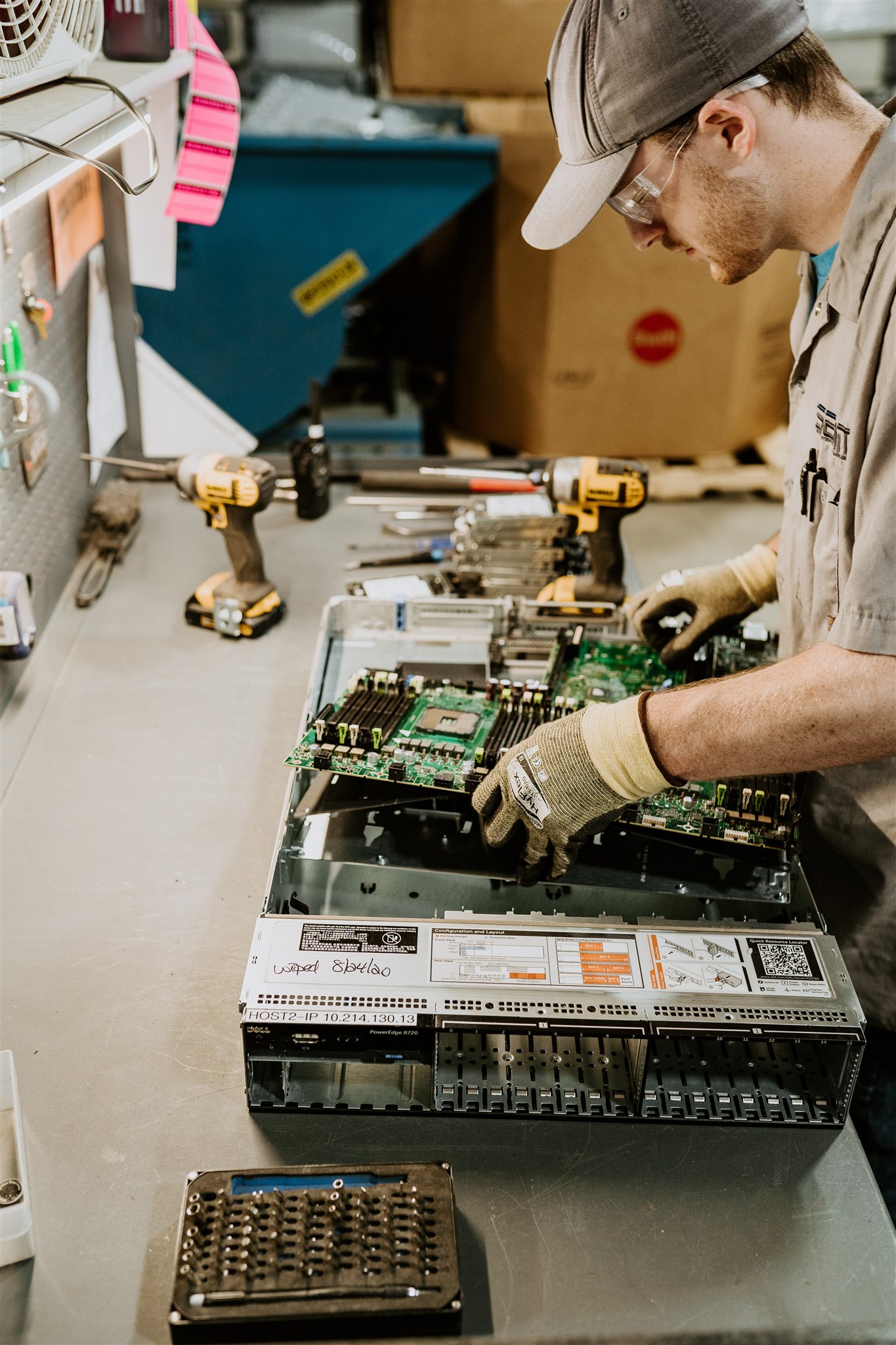Electronics Recycling

SEAM maintains recycling standards in compliance with both e-Stewards and R2, along with other recognized certifications, to provide the highest worldwide standards for data security, environmental management systems and quality processes.
All data bearing devices are handled in accordance with SEAM's stringent security standards.
SEAM has established documented procedures for managing Hazardous e-Waste equipment, components, and materials – with respect to both onsite activities and the selection of downstream vendors. Our first priority is protecting worker health and safety, public health, and the environment.
SEAM does not allow the export of hazardous e-waste materials to developing countries, either directly nor indirectly through our downstream partners.
All downstream vendors are fully audited annually according to SEAM's certification requirements and must pass our rigorous environmental audits before they are authorized to handle any material for further processing. Along with environmental standards, vendors must meet strict health, safety and security requirements and abide by import/export legislation, allowing SEAM to track all materials to their final destinations.
Electronic waste, commonly referred to as e-waste, is any electronic device that has reached the end of it's useful life. Whether it is at the "end-of-life" and is completely non-functional, or just "end-of-use" and has potential to be reused, it's important to properly handle IT equipment to ensure any data contained is secured and the harmful chemicals inside are responsibly managed. Check out our infographic on why your business should care.
The average lifespan of today’s technology typically ranges from 10 months for assets like tablets and phones, to 2-3 years for PCs and servers. Without a plan in place, you are exposing yourself to huge operational risks.
With the growing amount of electronic waste (e-waste), proper electronics recycling is more important than ever before. If disposed of improperly, harmful materials such as lead, cadmium, chromium, and polychlorinated biphenyls (PCBs) can contaminate our soil and water if dumped illegally, or create toxic fumes if incinerated.
Effective May 4, 2004, a City of Sioux Falls ordinance banned electronics from the Sioux Falls Regional Sanitary Landfill, making it illegal to throw IT assets in the landfill.
Electronics Recycling Services
SEAM provides electronics recycling in Sioux Falls, as well as bulb recycling and battery recycling services using secure and environmentally sound methods to keep you in compliance and make sure you are protected.
Everything we touch is handled in accordance with the highest worldwide certifications for data security, environmental management systems, and quality processes. We follow strict guidelines including no-overseas and no-landfill policies, and establish a documented, chain of custody trail for your assets while safely and securely maximizing value. SEAM offers electronics recycling services to customers in the upper Midwest from the Sioux Falls area to Omaha, Nebraska to North Dakota! Contact us to learn how we can help you.
With SEAM, we manage the risks so you don’t have to.






